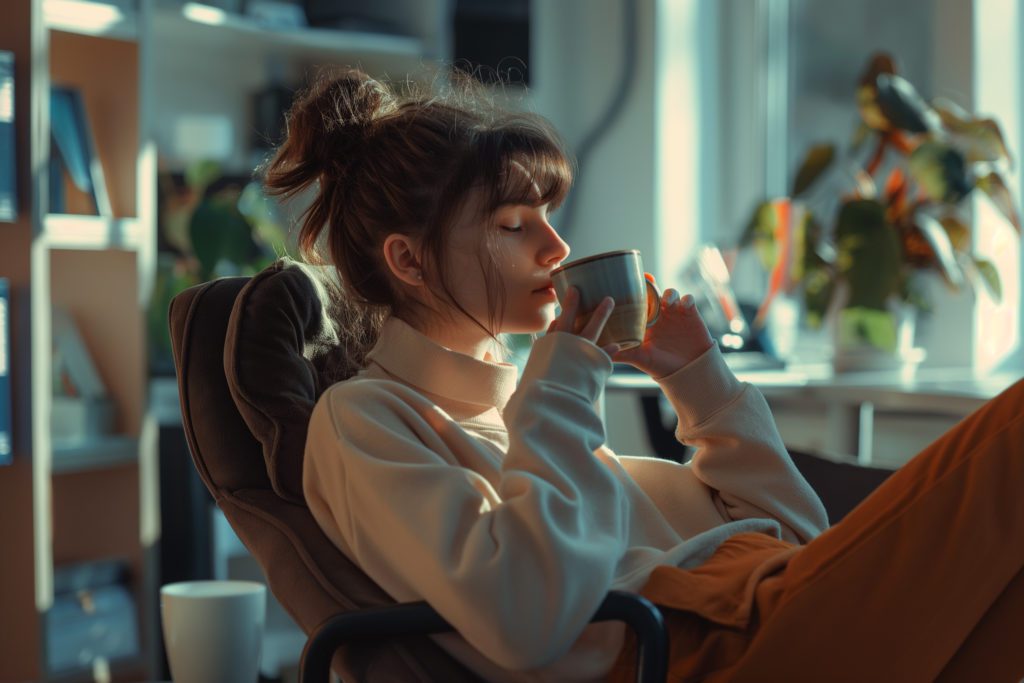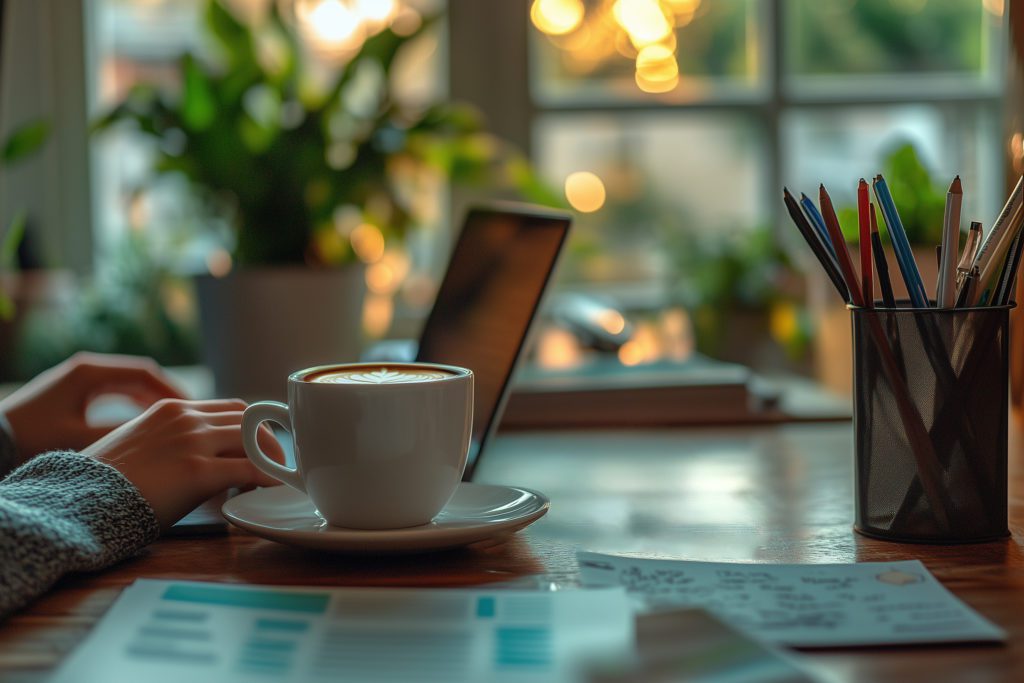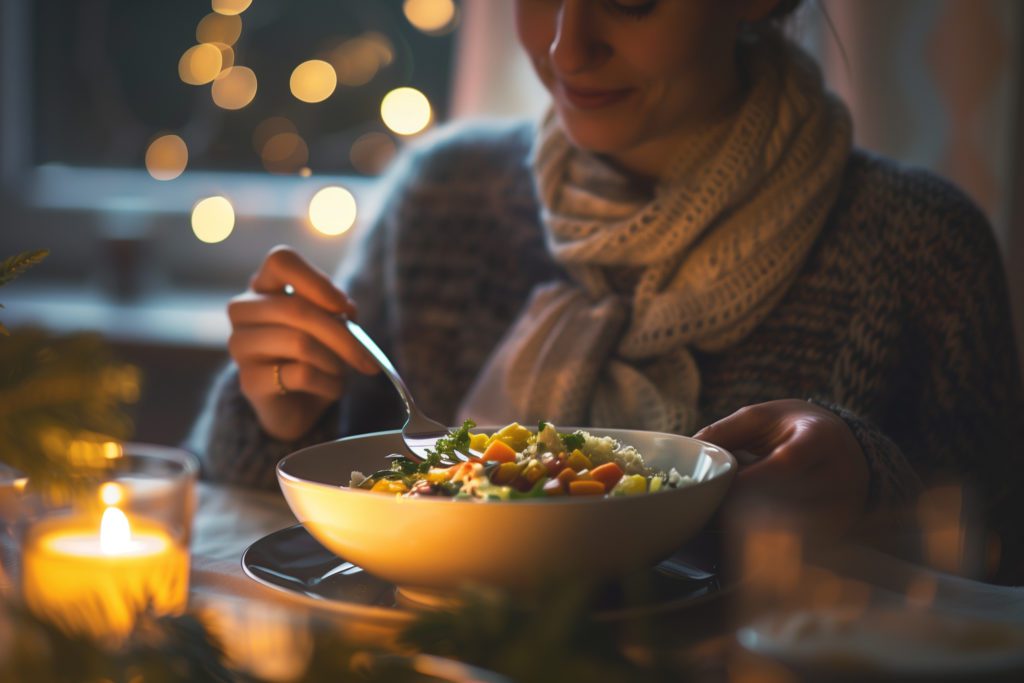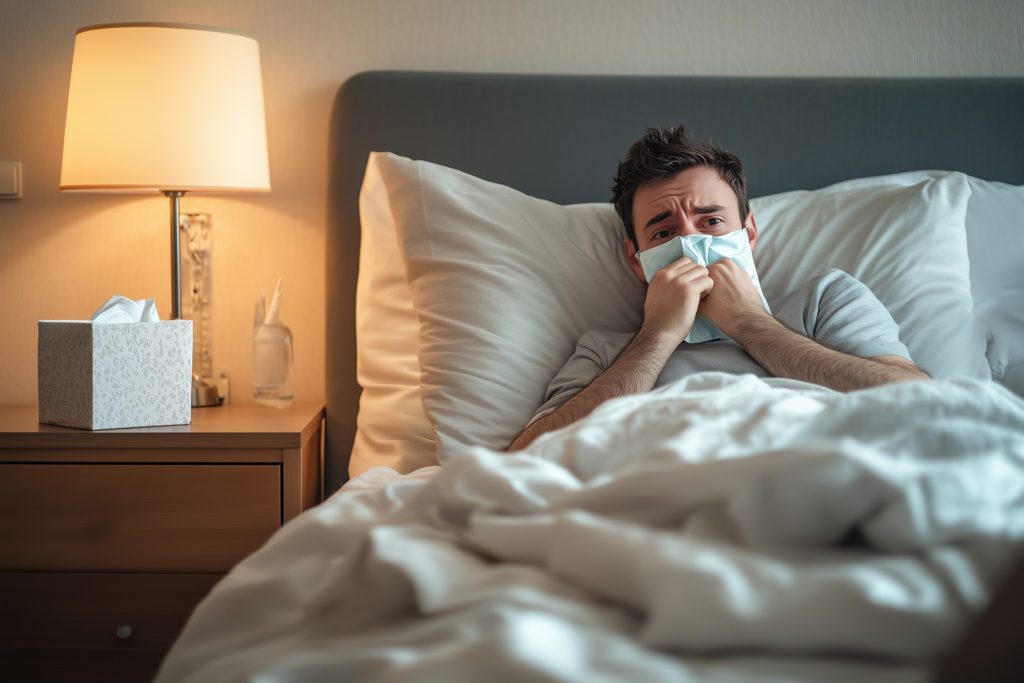
4 Alternatives To Coffee That May Be A Better Option For You
Coffee offers an energy boost that makes mornings bearable, but it may be impacting your sleep. Explore beverage and lifestyle alternatives for coffee.

Coffee is the unanimous beverage of sleepy individuals, with many needing a cup to start their day and some needing refills throughout the day to keep going. However, some people may find that coffee interferes with their sleep or upsets their stomachs, leaving them in pursuit of alternatives.
Luckily, there are beverage alternatives and other ways to boost your energy so that you don’t have to feel so reliant on coffee.
How Does Coffee Affect Your Sleep?
Your daily (or sometimes multiple times a day) cup of coffee may be sabotaging your sleep, all in the pursuit of giving you a boost of energy during the day.
As for how coffee keeps you from feeling sleepy, it has to do with the competition between caffeine and adenosine. Adenosine is a chemical produced in your brain that promotes sleep. It builds up during the day, and as it attaches to more adenosine receptors, you grow sleepier and sleepier. Once you cross a certain threshold, you feel tired enough to go to sleep. However, caffeine can interfere.
Caffeine can bind to these receptors, blocking adenosine from doing the same. As a result, less adenosine binds, which leads to less sleepiness—this is how caffeine keeps you from feeling sleepy.
However, these effects also lead to caffeine’s ability to keep you from falling asleep at night. If you drink caffeine close to bedtime, it can keep adenosine from binding to receptors, blocking the natural process of your sleep-wake cycle. As a result, you may not feel tired enough to go to bed, leading to insomnia.
Unfortunately, this can create a cycle where you need coffee to get through the day, but then it continues to make you too wired to fall asleep at night. If the pattern continues, you may find your sleep-wake cycle thrown off, even if you were to skip a cup of coffee.
Research has shown that caffeine can cause you to fall asleep later and have less satisfying sleep. Part of this may be because of its impact on your slow-wave sleep, also known as deep sleep. Caffeine can cause you to get less of this restorative stage of sleep, which may be why you feel more tired the next day.
How Long Can Caffeine’s Effects Last?
Caffeine has a half-life, or the amount of time that it takes for half of it to leave your system, between 2-12 hours. This means that some people may be able to have a cup of coffee after dinner and be fine by the time they go to sleep, while others may not be able to have caffeine after lunch. Typically, the effects of caffeine can last up to five hours after you drink a cup of coffee. However, factors such as how much caffeine your coffee has, how frequently you consume caffeine, and your genes can all influence how quickly caffeine leaves your system.
Alternatives to Coffee
If you’re looking for a beverage option that doesn’t have as much caffeine or doesn’t cause the digestive distress that can occur with coffee, the following are some options:
Chicory Coffee
Chicory root, similar to coffee beans, can be roasted, ground, and brewed into a warm beverage that tastes similar to coffee but without the caffeine.
There are health benefits to chicory coffee, as well. Specifically, it is a great source of inulin, a soluble fiber that can aid digestion by promoting a good balance of bacteria in your gut.
Golden Milk
Another caffeine-free option is golden milk, which incorporates a blend of spices that include cinnamon, ginger, black pepper, and turmeric. The turmeric, in particular, offers anti-inflammatory properties thanks to the chemical curcumin.
Chai Tea
If you’re not ready to give up caffeine completely, a lower-caffeine option may be ideal.
Chai tea is a type of black tea that is blended with herbs and spices. A cup generally contains 48 mg of caffeine, which is less than coffee, but it still improves mental alertness. Some studies even suggest that drinking black tea may also lower the risk of heart disease.
Lemon Water
Another alternative to coffee can be something as simple as lemon water, which is calorie- and caffeine-free.
Since coffee can be a dehydrating beverage, drinking water—jazzed up with some lemon or other fruits—offers the hydration boost that coffee doesn’t. Additionally, lemon water comes with the benefit of providing a dose of vitamin C, which is an antioxidant that serves a vital role in your immune system.
Non-Beverage Alternatives to Coffee
If you’re looking for a way to banish sleepiness without turning to a cup of coffee, the following are some habits that can offer the same energy boost:
- Get in the sun. Sunlight is one of the cues used by our bodies to signal the wake portion of our sleep-wake cycle, so getting sunlight when you’re feeling sleepy can help to banish sleepiness and keep you alert. Turning on a bright light can work, as well, but getting outside and enjoying some natural light is often best.
- Exercise. You may feel too tired for exercise, but working out can give you an energy boost, so try to power through the sleepiness. As a bonus, exercising during the day can help you sleep better at night, helping to break the cycle. You don’t have to do a significant workout, either; just a walk around the block can give you the boost you need.
- Power nap. If your sleepiness is high, consider taking a power nap to offer a temporary boost in alertness. Be sure to cap it at 20 minutes, though; otherwise, you may hinder your nighttime sleep.
- Don’t skip meals. Food is a source of energy, so be sure not to skip them during the day. Even better, fuel up with healthy foods to avoid a sugar crash.
Should I Swap Out Coffee?
There are a few reasons why you may be looking for an alternative to coffee. Maybe you don’t like the taste, or perhaps the caffeine leaves you feeling jittery. Or, it may be too late in the day for you to have caffeine, but you’re still looking for a boost of energy that won’t sabotage your nighttime sleep.
There are beverage alternatives to coffee, some that maintain the taste, and others that have a different flavor and lower or no caffeine. There are also other ways to get a boost of energy besides drinking coffee, such as going for a walk outside.
Whether or not you need to swap out coffee depends on your preferences and if you feel that it is interfering with your sleep. If it is, there are options available.
FAQ
Why do I feel more tired after drinking coffee?
Caffeine blocks sleep signals temporarily, but when it wears off, you might feel even more exhausted.
Is green tea a good coffee alternative?
Yes! It has less caffeine than coffee and contains L-theanine, which helps with focus and calm energy without jitters.
What’s the best way to wake up without caffeine?
Try getting sunlight, drinking cold water, stretching, or taking a brisk walk—these all help wake up your body naturally.
Why do some people handle caffeine better than others?
Genetics play a big role in how fast your body processes caffeine.
Is it okay to drink coffee on an empty stomach?
It can cause acid reflux or jitters—having food first helps.
Can coffee make me dehydrated?
Yes, caffeine is a mild diuretic, so drinking water alongside coffee helps.
What’s the healthiest way to get an energy boost?
Good sleep, staying hydrated, eating balanced meals, and moving your body!

Written by
Jessica G
Medical writer freelancer who has written hundreds of articles on varying topics. Masters of Engineering degree in Biomedical Engineering.
Download Pillow
Get help
Press & News
Legal
Connect
X (Twitter)
Company
Copyright © Neybox Digital Ltd.



